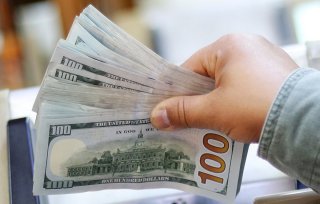Bad News: More States Say No to $300 Enhanced Unemployment Benefits
Nearly half of all U.S. states have announced that they will end their participation in federal enhanced jobless benefits.
Nearly half of all U.S. states have announced that they will end their participation in federal enhanced jobless benefits.
Most governors in these states are asserting that the enhanced $300 weekly unemployment checks are keeping individuals out of the workforce. Despite these actions, President Joe Biden’s American Rescue Plan will continue to have the aid available in other states till early September.
Texas Gov. Greg Abbott last week defended his decision to pull the state out of the federal unemployment benefits.
“We have the demand for the workforce where people can get back to work, and the numbers are safe enough in our state for people to get back to work,” Abbott told CNBC.
“It is time for America to get back to work,” he added.
However, not all Texans are on board with the stance, as a petition calling for the governor to reverse his decision already has garnered more than nine thousand signatures.
“The last year has been hard on so many of the sons and daughters of Texas. COVID-19 brought with it unexpected consequences in multiple areas of life. Socially, physically, emotionally, financially, and probably more than we haven’t realized yet,” the petition wrote.
“I’m talking about the ending prematurely of the federally funded unemployment that other states have declared they know what’s best for the people underneath them and thus begun to systematically take away a lifeline of funding for your most vulnerable Americans. What you’re saying is that you alone know the cases of each individual on unemployment and not one of them needs it. That is vanity at best and dictatorship at worst,” it continued.
White House officials and many other economists say that the federal unemployment boost is not pushing the unemployed to delay their return to the workforce. A working paper released by the Federal Reserve Bank of San Francisco has indicated that the enhanced unemployment benefits only have a small impact on people’s willingness to accept employment offers.
“We recognize that the labor supply has been affected by the pandemic,” White House spokeswoman Karine Jean-Pierre recently told reporters. “(There’s) little evidence though that enhanced unemployment benefits are currently affecting Americans’ willingness to work.”
Despite pulling out of the enhanced unemployment program, some states like Arizona, Montana, and New Hampshire are giving financial incentives to those who eventually accept a job.
For example, Arizona’s Back to Work program offers one-time $1,000 payment to unemployment benefit recipients who accept part-time work and $2,000 to full-timers.
“In Arizona, we’re going to use federal money to encourage people to work instead of paying people not to work,” Gov. Doug Ducey recently told reporters.
Ethen Kim Lieser is a Minneapolis-based Science and Tech Editor who has held posts at Google, The Korea Herald, Lincoln Journal Star, AsianWeek, and Arirang TV. Follow or contact him on LinkedIn.

